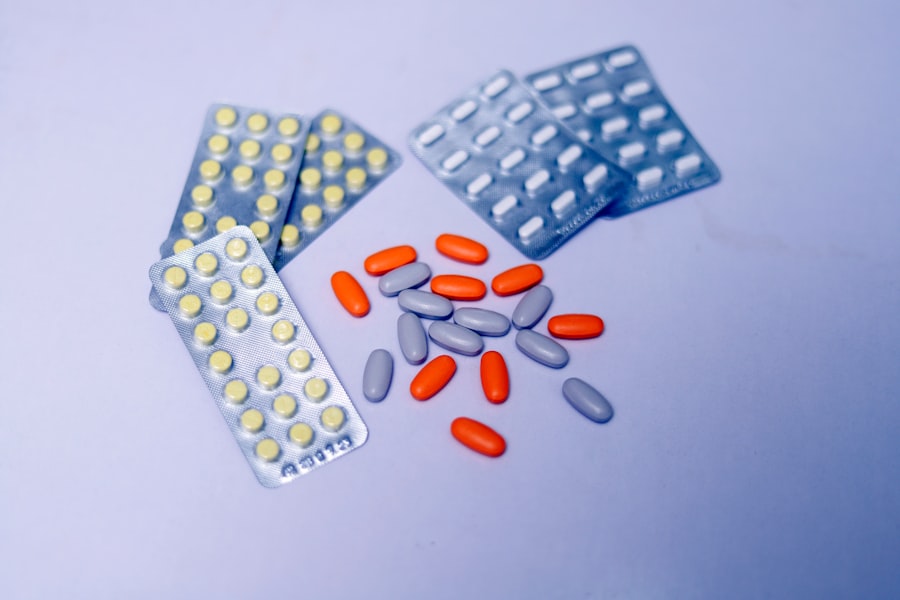The pharmaceutical industry has traditionally relied on face-to-face interactions, print advertising, and direct mail campaigns to reach healthcare professionals and consumers. However, the landscape of marketing has undergone a significant transformation in recent years, driven by the rapid advancement of technology and the increasing prevalence of digital communication. The shift to digital marketing in pharma is not merely a trend; it represents a fundamental change in how pharmaceutical companies engage with their audiences.
This transition is largely influenced by the growing demand for more accessible, transparent, and informative content that can be consumed at the convenience of the user. As patients and healthcare providers increasingly turn to online platforms for information, pharmaceutical companies are recognizing the necessity of establishing a robust digital presence. This shift is characterized by a move towards more interactive and engaging forms of communication, such as webinars, online forums, and social media interactions.
The COVID-19 pandemic further accelerated this transition, as in-person meetings became less feasible, prompting companies to explore virtual alternatives. The result is a more dynamic approach to marketing that not only enhances brand visibility but also fosters deeper connections with stakeholders through personalized and relevant content.
Key Takeaways
- Digital marketing is transforming the pharmaceutical industry by enabling more targeted and efficient outreach.
- Data analytics plays a crucial role in creating personalized marketing strategies for healthcare professionals.
- Social media and influencer marketing are becoming key tools for engaging both patients and providers.
- Content marketing helps educate audiences and build trust around pharma products.
- Navigating regulatory challenges is essential to ensure compliance and measure ROI effectively in digital pharma campaigns.
Leveraging Data and Analytics for Targeted Marketing
In the realm of digital marketing, data and analytics serve as the backbone for crafting targeted campaigns that resonate with specific audiences. Pharmaceutical companies are increasingly harnessing big data to gain insights into consumer behavior, preferences, and trends. By analyzing vast amounts of data from various sources—such as electronic health records, social media interactions, and online search patterns—marketers can identify key demographics and tailor their messaging accordingly.
This level of precision allows for more effective allocation of resources and maximizes the impact of marketing efforts. For instance, a pharmaceutical company launching a new diabetes medication can utilize data analytics to segment its audience based on factors such as age, geographic location, and existing health conditions. By understanding which segments are most likely to respond positively to their product, the company can create targeted advertisements that speak directly to those individuals’ needs and concerns.
Moreover, real-time analytics enable marketers to monitor campaign performance continuously, allowing for agile adjustments that enhance engagement and conversion rates. This data-driven approach not only improves marketing efficiency but also fosters a more personalized experience for healthcare professionals and patients alike.
Utilizing Social Media and Influencer Marketing in Pharma

Social media has emerged as a powerful tool for pharmaceutical companies seeking to connect with both healthcare professionals and patients. Platforms like Facebook, Twitter, LinkedIn, and Instagram provide unique opportunities for brands to engage in two-way conversations, share valuable information, and build community around health-related topics. By leveraging social media, pharma companies can disseminate educational content, promote new products, and address common misconceptions about medications or health conditions in real time.
Influencer marketing has also gained traction within the pharmaceutical sector. Collaborating with healthcare professionals who have established credibility and a following on social media can amplify a brand’s message significantly. For example, a well-respected physician who shares insights about a new treatment option can influence their followers’ perceptions and decisions regarding that treatment.
This strategy not only enhances brand visibility but also builds trust among potential patients who may be more inclined to consider a medication endorsed by a trusted figure in the medical community. However, it is crucial for pharmaceutical companies to navigate these partnerships carefully, ensuring compliance with regulatory guidelines while maintaining authenticity in their messaging.
Harnessing the Power of Content Marketing for Pharma Products
| Metric | Description | Pharma Content Marketing Impact | Example/Notes |
|---|---|---|---|
| Audience Reach | Number of healthcare professionals and patients engaged | Increased by 40% through targeted educational content | Use of blogs, webinars, and newsletters |
| Engagement Rate | Percentage of users interacting with content | Average 25% higher than traditional pharma ads | Measured via comments, shares, and time spent |
| Lead Generation | Number of qualified leads generated from content | 30% increase after implementing content marketing strategy | Includes sign-ups for trials, consultations, and downloads |
| Content Conversion Rate | Percentage of content consumers converting to customers | Improved by 15% with personalized content | Use of patient stories and case studies |
| SEO Performance | Ranking improvement for pharma-related keywords | Top 3 rankings achieved for 10+ key terms | Optimized blog posts and educational resources |
| Brand Trust & Authority | Perceived credibility among healthcare professionals | Enhanced through consistent, evidence-based content | Measured via surveys and social listening |
| Content Production Frequency | Number of content pieces published monthly | 20+ articles, videos, and infographics per month | Maintains audience interest and SEO benefits |
Content marketing has become an essential component of digital strategies in the pharmaceutical industry. By creating informative and engaging content—such as articles, videos, infographics, and podcasts—pharmaceutical companies can educate their audiences about health conditions, treatment options, and the science behind their products. This approach not only positions the brand as a thought leader but also fosters trust among healthcare professionals and patients who seek reliable information.
For instance, a pharmaceutical company specializing in oncology might develop a series of educational videos that explain the mechanisms of action of its cancer therapies. These videos could feature interviews with leading oncologists discussing the latest research findings or patient testimonials sharing their treatment journeys. By providing valuable content that addresses the needs and concerns of both healthcare providers and patients, the company can enhance its reputation while driving engagement with its products.
Furthermore, optimizing this content for search engines ensures that it reaches a wider audience actively seeking information related to their health conditions.
Implementing Personalized Marketing Strategies for Healthcare Professionals
Personalization is at the forefront of modern marketing strategies across various industries, including pharmaceuticals. By tailoring marketing efforts to meet the specific needs of healthcare professionals, companies can foster stronger relationships and improve engagement rates. Personalized marketing involves utilizing data insights to deliver relevant content and communications that resonate with individual healthcare providers based on their specialties, interests, and previous interactions with the brand.
For example, a pharmaceutical company may segment its email marketing list based on specialties such as cardiology or endocrinology. By sending targeted newsletters that include research updates, clinical trial results, or product information relevant to each specialty, the company can ensure that healthcare professionals receive information that is pertinent to their practice. Additionally, personalized marketing can extend to digital advertising campaigns where ads are customized based on user behavior or preferences.
This level of personalization not only enhances the user experience but also increases the likelihood of conversion as healthcare professionals feel more connected to the brand’s offerings.
Navigating Regulatory Challenges in Digital Pharma Marketing

While digital marketing presents numerous opportunities for pharmaceutical companies, it also comes with its own set of regulatory challenges. The pharmaceutical industry is one of the most heavily regulated sectors due to the potential impact of medications on public health. As such, companies must navigate complex regulations governing advertising practices, particularly when it comes to promoting prescription drugs.
Compliance with guidelines set forth by organizations such as the Food and Drug Administration (FDA) in the United States is paramount to avoid legal repercussions. Pharmaceutical marketers must ensure that all digital content adheres to regulations regarding claims made about products, disclosure of side effects, and promotion of off-label uses. For instance, when creating social media posts or online advertisements, companies must provide balanced information about benefits and risks associated with their medications while avoiding misleading statements.
Additionally, transparency is crucial; any sponsored content or influencer partnerships must be clearly disclosed to maintain trust with audiences. As digital marketing continues to evolve, staying informed about regulatory changes will be essential for pharmaceutical companies aiming to leverage these platforms effectively.
Integrating Virtual Reality and Augmented Reality in Pharma Campaigns
The integration of virtual reality (VR) and augmented reality (AR) into pharmaceutical marketing campaigns represents an innovative approach to engaging audiences in immersive experiences. These technologies allow companies to create interactive environments where healthcare professionals can explore complex medical concepts or visualize how a drug works within the body. For example, VR simulations can provide physicians with virtual tours of anatomical structures or demonstrate how a particular treatment targets specific cells.
AR applications can enhance educational materials by overlaying digital information onto real-world environments. A pharmaceutical company might develop an AR app that allows healthcare providers to scan a medication’s packaging with their smartphones to access detailed information about dosage instructions or potential side effects in an interactive format. Such experiences not only capture attention but also facilitate deeper understanding among healthcare professionals regarding product applications and benefits.
As these technologies become more accessible and affordable, their adoption in pharma marketing is likely to increase significantly.
Measuring Success and ROI in Digital Pharma Marketing
Measuring success in digital pharma marketing requires a comprehensive approach that goes beyond traditional metrics such as impressions or clicks. To truly understand the effectiveness of campaigns, pharmaceutical companies must establish clear objectives aligned with their overall business goals and utilize advanced analytics tools to track performance against these objectives. Key performance indicators (KPIs) may include engagement rates on social media platforms, website traffic generated from specific campaigns, lead generation metrics, or even changes in prescription rates following targeted marketing efforts.
Moreover, calculating return on investment (ROI) in digital marketing can be complex due to the multifaceted nature of customer journeys in healthcare. It is essential for companies to adopt a holistic view that considers both direct conversions—such as prescriptions written—and indirect impacts like brand awareness or improved relationships with healthcare providers. Advanced attribution models can help marketers understand which touchpoints along the customer journey contribute most significantly to conversions.
By continuously analyzing these metrics and refining strategies based on insights gained from data analysis, pharmaceutical companies can optimize their digital marketing efforts for maximum impact and sustained growth in an increasingly competitive landscape.



